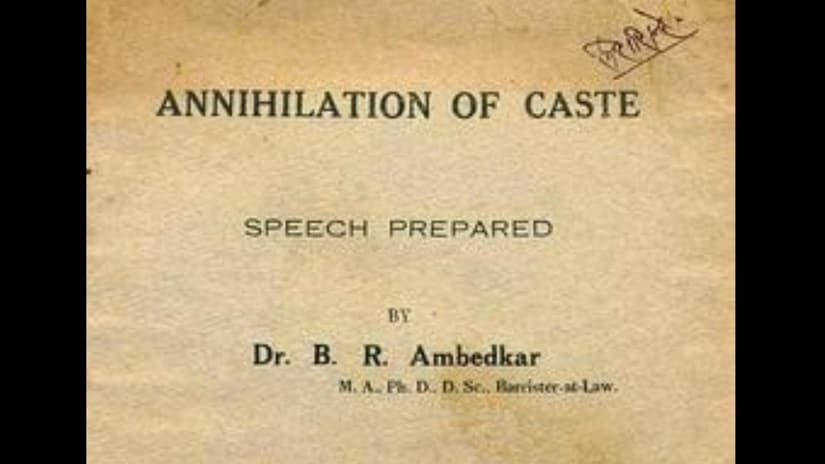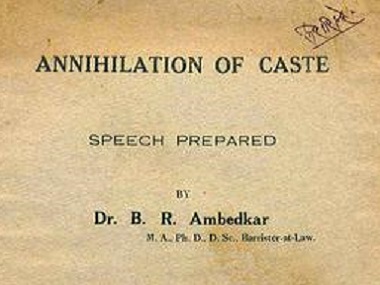Editor’s note: Firstpost does not run pieces in epistolary form, but given that Raksha Kumar's rebuttal — to which this is a response — was directed specifically at the author, an exception has been made. Read the original column by the author — For Rohith Vemula, who wanted to learn; and for Savarnas who are too good to learn — here . *** Sister, I am using this piece and platform to exercise my writing. I want to know if I can protest while I’m also laughing and singing. Sister, my heart is full of warmth on this nice Bengaluru morning. I am listening to songs from 96 and feeling a lot of love. First of all, I want to say thank you, sister. Even the greatest of teachers need to be reminded now and then to practice what they teach. And only you could have taught me that I have forgotten an age-old creative writing gem: “Show; don’t tell.” Because in my piece, I was only able to tell people that you are entitled, but you went ahead and showed it. You showed things that I could never even dream of telling. I would expect nothing less from an accomplished writer like you. For this, I must say: thank you from the bottom of my bottom. Second of all, sister: have you watched VIP? Dhanush’s VIP — the first one, not the second one. If you have, then you know what Amul Baby means. See sister, I am not saying you are Amul Baby but something about our casual exchange made me feel that we are both in that film and that I am obviously Dhanush. Now I know what you want to ask me: why can’t you be Dhanush? I will tell you why. 1) I am loving him sincerely from many many years. 2) He and I are same-same colour. 3) I think I dance like him. You can either be Amma or Amul Baby. But Amma dies in the film, and I love you, so I don’t want you to be Amma. Therefore, you are Amul Baby (only for logistical purposes). The reason why so many people went mad in Lavanya Theatre that day when Dhanush gave his 1.58 minute dialogue is because he dealt with power stylishly. He was able to say things that people like us feel in our stomachs when power threatens us. And when I saw how you were able to change what was already published in my piece, I understood what is power. I was awestruck but also a little scared. Basically, I was afraid of your power. But this is nothing new for me, nor my ancestors; we have dealt with it before and we will deal with it again. If you think that that power has nothing to do with caste, then please come sit in my classes when I teach students about Ambedkar and Annihilation of Caste. In fact, they will teach you better. [caption id=“attachment_5961651” align=“alignnone” width=“825”]  Image via Wikimedia Commons[/caption] What you were able to do with your power, took me back to the days when Appa would suddenly get up from the sofa when his superiors called him on the phone. It scared me that there was fear in his voice. I didn’t like hearing him that way but that’s how it was. On a regular Sunday morning, he could be transferred to any part of the state and he could do nothing about it. I was reminded of that even if this comparison is flawed (because he has had to deal with worse and with no support). But ever since you began making a fuss, I have been dreaming of giving you the 1.58-minute dialogue (with love, not anger, and hopefully with a little bit of style).
I might be presumptuous but I still have to say it, sister. I feel that when Dalits write, we write from our bodies (little over acting I am doing, I know. But what to do — we are in a mass film, so it’s okay). There is something called full-body reading, I am advocating ‘full body writing’; it means to write as if the words are all coming from the gut, heart, liver, teeth, eyes. It’s how Gogu Shyamala writes, it’s how Ambedkar also wrote. It’s how I am learning to write.
But because we have struggled to come here and because our bodies are full of caste, and caste memories that have to be purged before we can move on to writing about other things, very few Dalit, OBC writers that I know today get to write about what they really want to write: films, books, sex, technology, dating etc. The rest of us are still getting there. When we first write, we have to remove the venom that has been sitting in our bodies and minds — accumulated from years of having to deal with Savarna fragility, criticism, bullies etc. Don’t Savarnas have bullies in their lives? Maybe. But caste doesn’t live in your bodies like it does in ours and sometimes its scars take a long time to fade. Often, they don’t fade at all. Even if we move on to writing about other things, we keep getting pulled into responding to people like you. I have been dying to write about Ranveer Singh and Sara Ali Khan but all my energy goes off in dealing with caste. What to do? Now coming to what it is that you have done that is so terrible. It is in bad faith to tag a Dalit woman writer and offer her your unfounded opinion (“What are opinions based on? Not facts?” — these are your words, sister). (It’s also a fact for you, not me) that a critical review of her book is a ‘takedown’.


)
)
)
)
)
)
)
)
)



